The Tansen of 20th Century
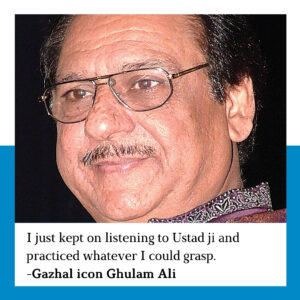
Many Indian classical music legends across the globe – Ghazal king Ustad Ghulam Ali, Sangeet Samrat Chitravina N Ravikiran, Dr Geetha Upadhyaya (OBE), Founder Kala Sangam), Tabla maestros Pt. Kumar Bose, Pt. Tanmoy Bose, Pt. Shubhankar Banerjee, Pt. Abhijit Banerjee, Ustad Raza Ali Khan (The grandson of Bade Ghulam Ali Khan), Violin maestros Kala Ramnath and Sriram Parsuram, Sarod maestros Pt. Rajeeb Chakraborty and Subhasish Banerjee, Vocalists Pt. Shantanu Bhattacharyya, Vidushi Sanhita Nandi, Pt. Chiranjeeb Chakraborty, Minakshi Majumdar, Koyel Bhattacharya and Sitarist Ramprapanna Bhattacharya paid their obeisance through their profound thoughts and performances, to Ustad Bade Gulam Ali Khan, on his 119th birthday. This event was arranged by Saudha Society of Poetry and Indian Music, one of the top promoters of Indian Classical Music in the UK, hosted by Ahmed Kaysher, founder of Sauda: www.saudha.org
Bade Gulam Ali Khan only cast light and not shadows:
Sangeet Samrat Chitravina N Ravikiran said A statement like ‘many artists lived in Ustadji’s shadows’, may inspire someone else to say, that ‘Khan Saheb only cast light, and not shadows.’ Many confuse grace with soft, but Bade Gulam Ali Khan ji’s music combined grace with power. His true voice culture, and correct singing techniques fascinated not only north-Indians but also people from all over the world. Even when it was difficult in those times for north and south Indian artists to have interactions, Ustadji’s fantastic Gramophone records inspired many Carnatic artists. One such artist was the legendary G N Balasubramaniam, who not only learnt from Ustadji, but also organized his concert tour in south India. Khan Saheb in turn learnt and performed Carnatic Ragas like Andolika and was also fascinated by the Carnatic interpretation of Malkauns (Hindolam) with lesser Meends and faster tempo. Ravikiranji gave a glimpse of Raga Andolika on Chitravina, depicting the immense beauty of the Raga.
Epitome of all glorious creation:
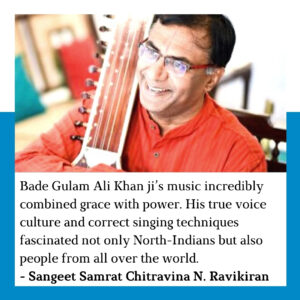 Vocal and Violin maestro Dr. Sriram Parasuram, began with the Bhajan ‘Hari Om Tatsat’ (popularized by Ustadji) in Mishra Pahadi. He said, “I see Khan Saheb as an epitome of all that is glorious and beautiful about the creation of music. He had a rare gifted voice, which he evolved through rigorous and continuous Sadhana. The magnificence of the solidity, virtuosity, perfection, power, resonance, and expression, that his voice portrayed remains unmatched. Ustadji unified the dichotomies like Classical/Folk music, North/South Indian Music, and even the stillness of notes and the Ghamak / Meend, with a perfect balance. His musical journey was an honest search for truth and therefore his music employs no escapisms.” Illustrating all these points, Dr. Parsuram rendered bandishes in Raag Todi, Kedar and a Thumri in Jangala Bhairavi.
Vocal and Violin maestro Dr. Sriram Parasuram, began with the Bhajan ‘Hari Om Tatsat’ (popularized by Ustadji) in Mishra Pahadi. He said, “I see Khan Saheb as an epitome of all that is glorious and beautiful about the creation of music. He had a rare gifted voice, which he evolved through rigorous and continuous Sadhana. The magnificence of the solidity, virtuosity, perfection, power, resonance, and expression, that his voice portrayed remains unmatched. Ustadji unified the dichotomies like Classical/Folk music, North/South Indian Music, and even the stillness of notes and the Ghamak / Meend, with a perfect balance. His musical journey was an honest search for truth and therefore his music employs no escapisms.” Illustrating all these points, Dr. Parsuram rendered bandishes in Raag Todi, Kedar and a Thumri in Jangala Bhairavi.
Torch-bearer for all genres of music:
Ghazal king Ustad Gulam Ali observed that, musicians from all genres of music borrowed something precious from Khan Saheb. He said “We were mesmerized by Ustadji’s taan of three octaves, which felt as if it was over in a second! He was so kind to mention about me and his belief in my talent, to his brothers Ustad Barkat Ali Khan and Ustad Mubarak Ali Khan. For the next 12 years I learned from them about tonality of notes, Sargam and ragas and also about molding my voice tonality as per the song lyrics. Barkat Ali Khan blessed me that not just the general public, but many great artists would also listen to me. Even if I thank them for this blessing my entire life, it will not be enough.” Dr. Geetha Upadhyaya emphasized the truth and honesty of Khan Saheb’s music and also asked Ghulam Ali ji about his favorite songs. He said, “I like many of his Thumris, but am afraid of singing them in concerts. Whenever people request me, I render them and by God’s grace I am able to spread happiness.”
Sharing of anecdotes:
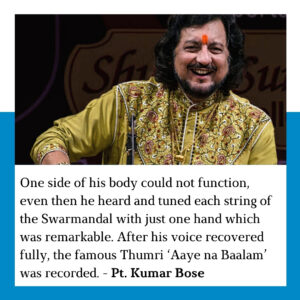 Pt. Kumar Bose narrated some incidents of the great Ustad. “Once Khan Saheb sang in a concert, from around 4-7 AM, but had to finish the concert, due to time limit. Afterwards many of his fans gathered and Ustadji said that if they wanted to listen more, they could accompany him to his home. So, they did and he again sang till 2 PM.” Kumar Da continued, “When Ustadji got paralyzed, he would wait every day for his voice to come back with tears in his eyes. When his voice started coming back, he asked his son Munawar Ali Khan to bring his Swarmandal, who asked which raga it should be tuned to. Ustadji got angry and said that, he was not so weak that he could not tune his Swarmandal himself. Since one side of his body could not function, he heard and tuned each string of the Swarmandal with just one hand which was remarkable. After his voice recovered fully, the famous Thumri ‘Aaye na Baalam’ was recorded.”
Pt. Kumar Bose narrated some incidents of the great Ustad. “Once Khan Saheb sang in a concert, from around 4-7 AM, but had to finish the concert, due to time limit. Afterwards many of his fans gathered and Ustadji said that if they wanted to listen more, they could accompany him to his home. So, they did and he again sang till 2 PM.” Kumar Da continued, “When Ustadji got paralyzed, he would wait every day for his voice to come back with tears in his eyes. When his voice started coming back, he asked his son Munawar Ali Khan to bring his Swarmandal, who asked which raga it should be tuned to. Ustadji got angry and said that, he was not so weak that he could not tune his Swarmandal himself. Since one side of his body could not function, he heard and tuned each string of the Swarmandal with just one hand which was remarkable. After his voice recovered fully, the famous Thumri ‘Aaye na Baalam’ was recorded.”
Shri Ravikiran ji then asked Gulam Ali ji about Khan Saheb’s riyaz timetable and methods, as this would benefit the younger artists of today. Gulam Ali said that, he just kept on listening to Ustadji, practiced and grasped whatever he could. Shri Kumar Bose added an extremely important point “Khan Saheb did not have any specific time for Riyaz. When he was awake, he did nothing but riyaz. Also, mere singing/playing does not constitute Riyaz. It is about constantly meditating upon Sur and Taal and staying in that aura, the entire time.”
Bade Gulam Ali Khan as a conscience:
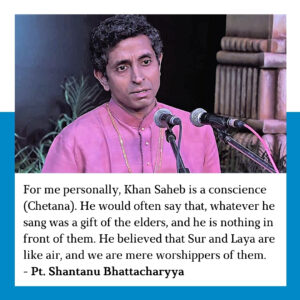 Pt. Shantanu Bhattacharyya said, “For me personally, Khan Saheb is a conscience (Chetana). He would often say that, whatever he sang was a gift of the elders, and he is nothing in front of them. He believed that Sur and Laya are like air, and we are mere worshipers of them. My Guruji, (who was Khan Saheb’s disciple) was singing in a concert, which was to be concluded by Ustadji himself. Ustadji encouraged him a lot from the audience and when it was Ustadji’s turn to sing, he said that after the good music he heard today, it was impossible for him to sing and he would perform the next day. This was the kind of encouragement he gave to his disciples.” Pt. Shantanu ji concluded with a wonderful rendition of ‘Yaad Unki Aaye’ Thumri.
Pt. Shantanu Bhattacharyya said, “For me personally, Khan Saheb is a conscience (Chetana). He would often say that, whatever he sang was a gift of the elders, and he is nothing in front of them. He believed that Sur and Laya are like air, and we are mere worshipers of them. My Guruji, (who was Khan Saheb’s disciple) was singing in a concert, which was to be concluded by Ustadji himself. Ustadji encouraged him a lot from the audience and when it was Ustadji’s turn to sing, he said that after the good music he heard today, it was impossible for him to sing and he would perform the next day. This was the kind of encouragement he gave to his disciples.” Pt. Shantanu ji concluded with a wonderful rendition of ‘Yaad Unki Aaye’ Thumri.
Music and nothing else:
Pt. Abhijit Banerjee shared his own experiences of listening to Khan Saheb. He said, the secret behind Ustadji’s divine music was that, he thought only about music 24/7 and never worried about the commercial aspects of it. Shri Tanmoy Bose then shared his own experiences of learning from Ustad Munawar Ali Khan. Pt. Shubhankar Banerjee narrated an interesting anecdote of Ustad Amir Khan and Ustad Bade Gulam Ali Khan, in which Ustad Amir Khan says that, “If I see a lamp in a far-away temple, I see Ustad Bade 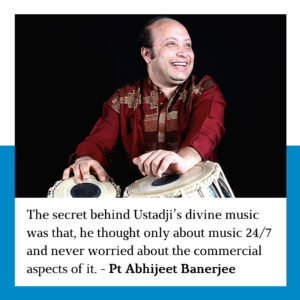 Gulam Ali Khan inside that temple.” Ustadji’s grandson Raza Ali Khan described how Ustadji helped many poor people through his selfless service. Kirana Gharana artist Vidushi Sanhita Nandi sang ‘Aaye Na Baalam’. Ramprapanna Bhattacharya (Sitar) played two compositions in Raga Des and Bihag and Smt. Minakshi Majumdar rendered ‘Yaad Piya ki Aaye’. Vidushi Kala Ramnath mesmerized the audience through her rendition of Ustadji’s Bandish ‘Naveli Naar’ in Raga Kedar. The event concluded with the evergreen Bhairavi Thumri ‘Bajuband Khul Khul Jaaye’ by Subhasish Banerjee (Sarod) and Koyel Bhattacharya (vocal). A truly befitting tribute by renowned maestros to the great Ustad.
Gulam Ali Khan inside that temple.” Ustadji’s grandson Raza Ali Khan described how Ustadji helped many poor people through his selfless service. Kirana Gharana artist Vidushi Sanhita Nandi sang ‘Aaye Na Baalam’. Ramprapanna Bhattacharya (Sitar) played two compositions in Raga Des and Bihag and Smt. Minakshi Majumdar rendered ‘Yaad Piya ki Aaye’. Vidushi Kala Ramnath mesmerized the audience through her rendition of Ustadji’s Bandish ‘Naveli Naar’ in Raga Kedar. The event concluded with the evergreen Bhairavi Thumri ‘Bajuband Khul Khul Jaaye’ by Subhasish Banerjee (Sarod) and Koyel Bhattacharya (vocal). A truly befitting tribute by renowned maestros to the great Ustad.
By – Bhushan Toshniwal
Toshniwal is a trained Hindustani and Carnatic singer and is a graded artist of All India Radio and Doordarshan.



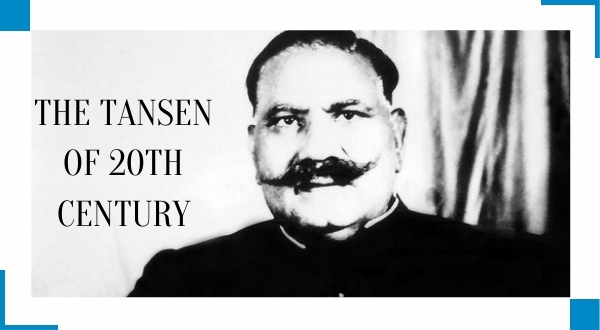
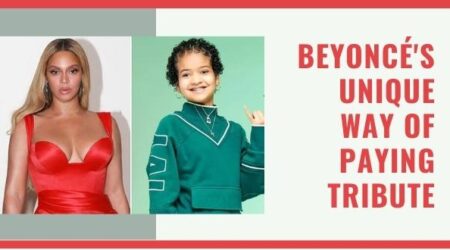
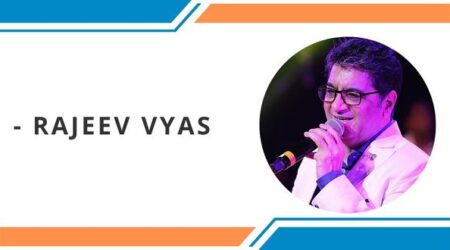

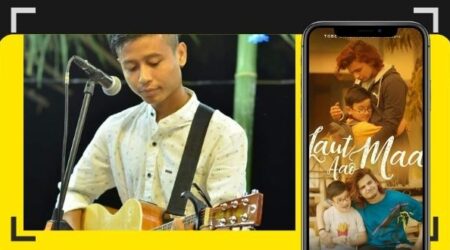
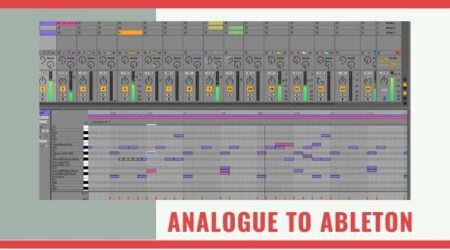

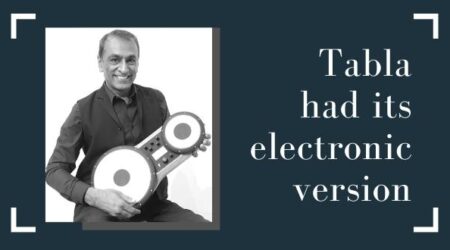
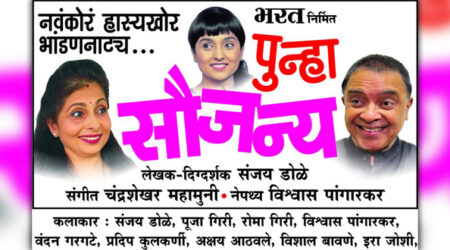

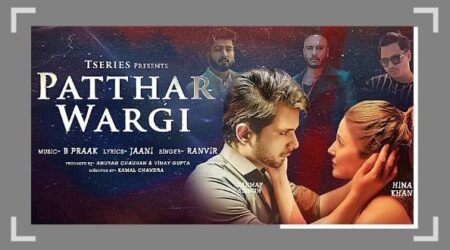

Leave a Reply